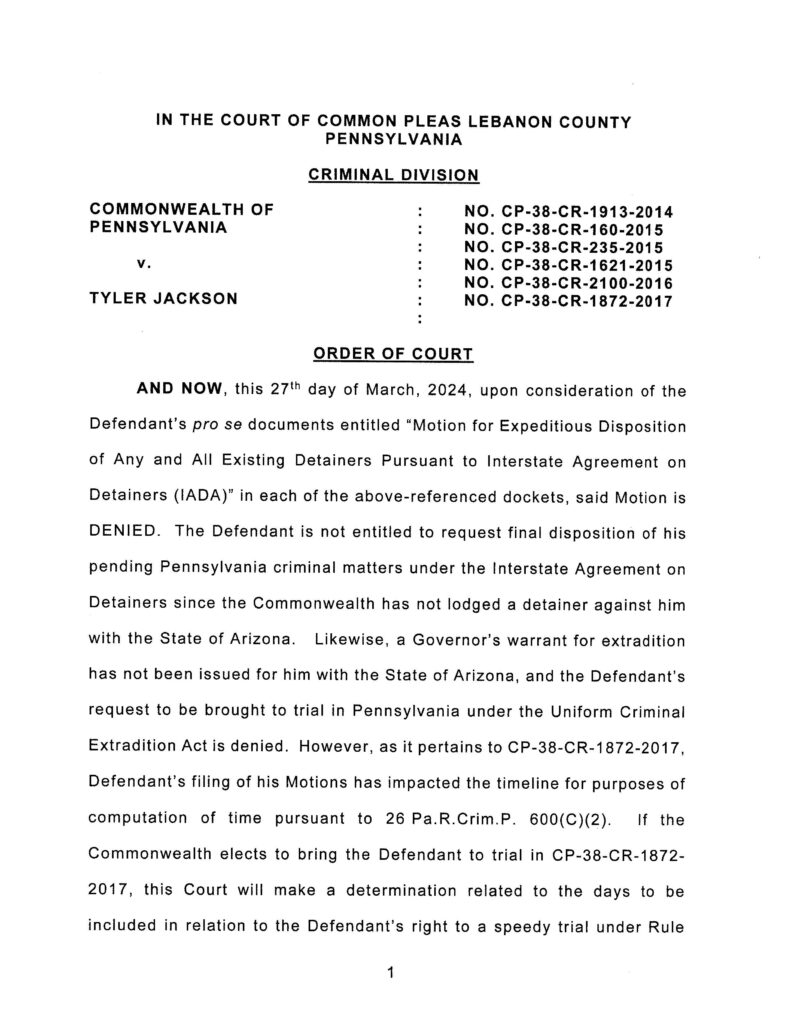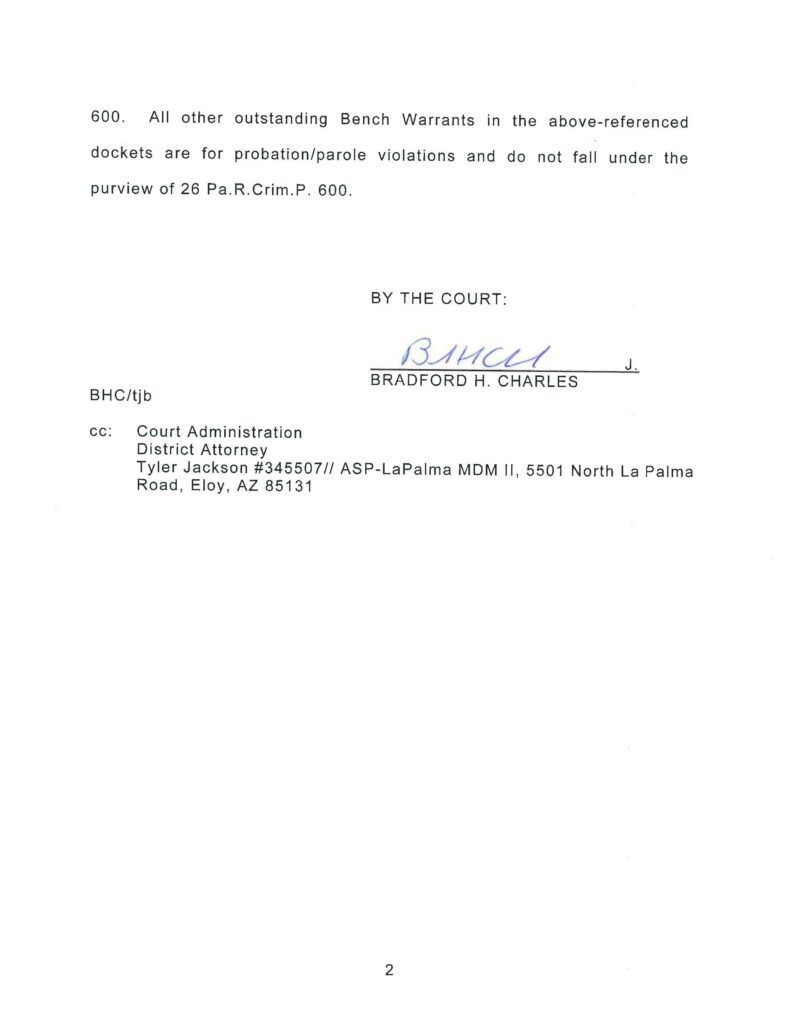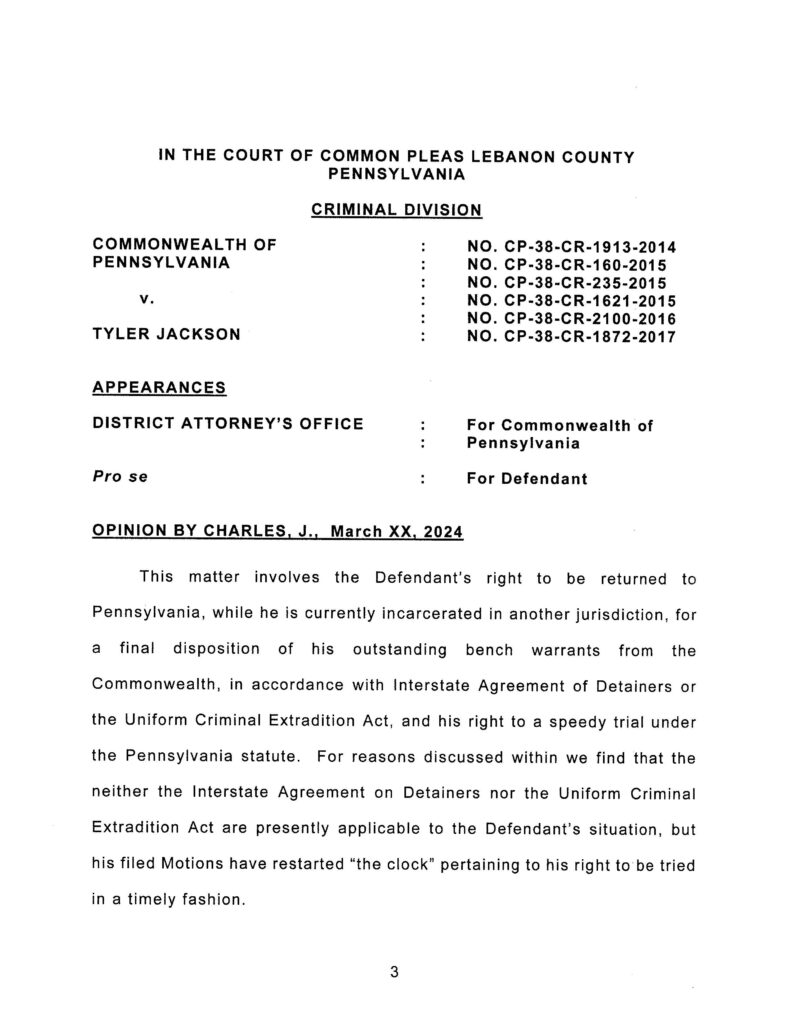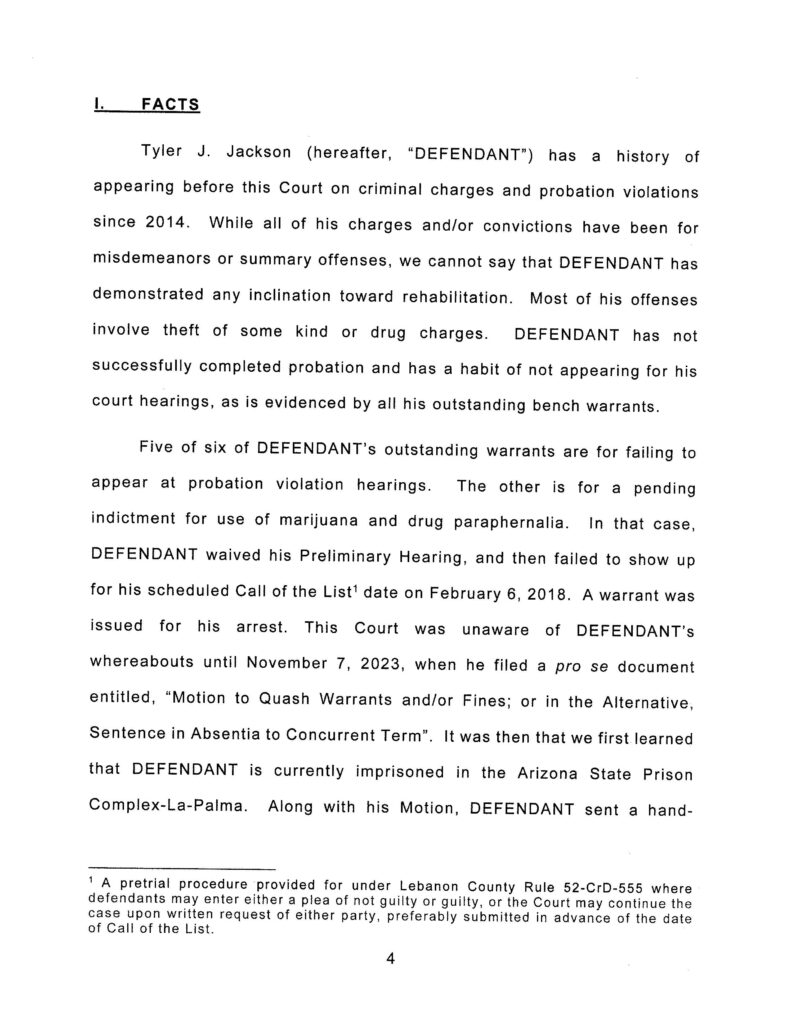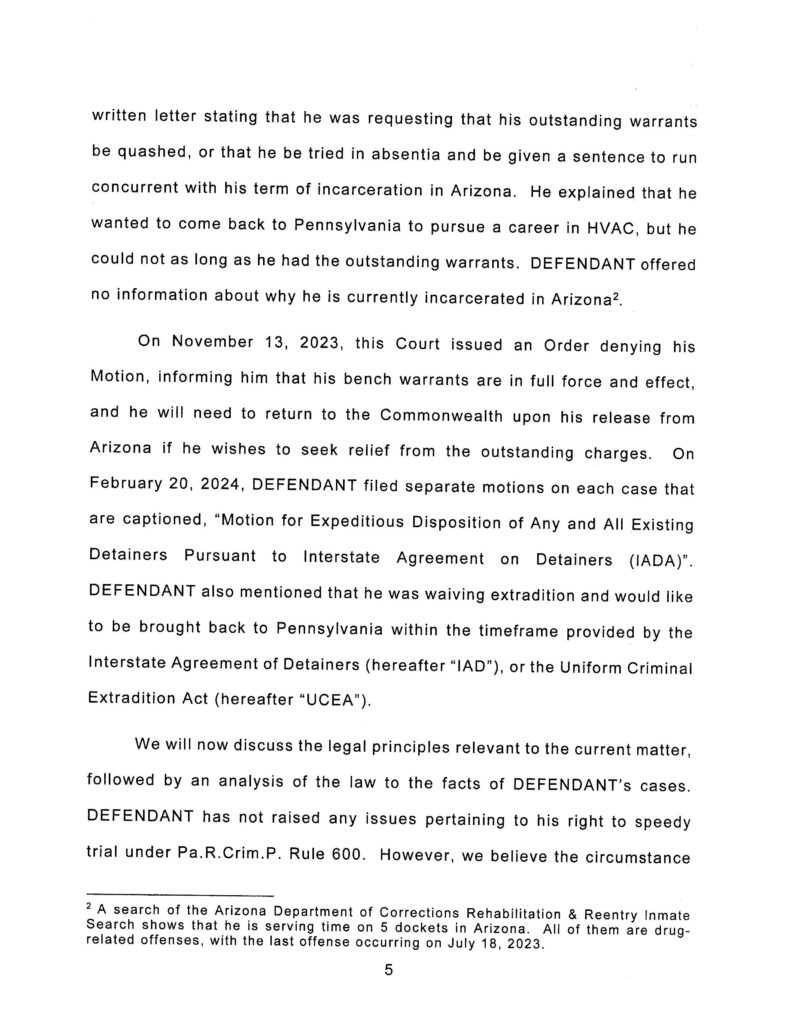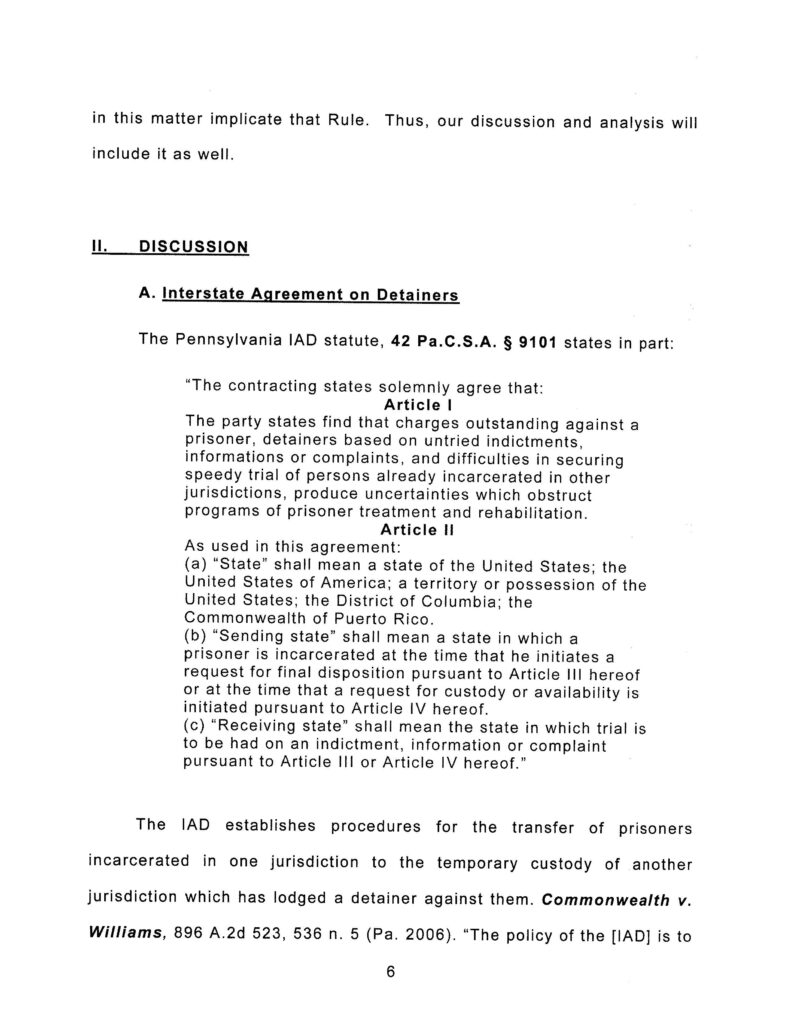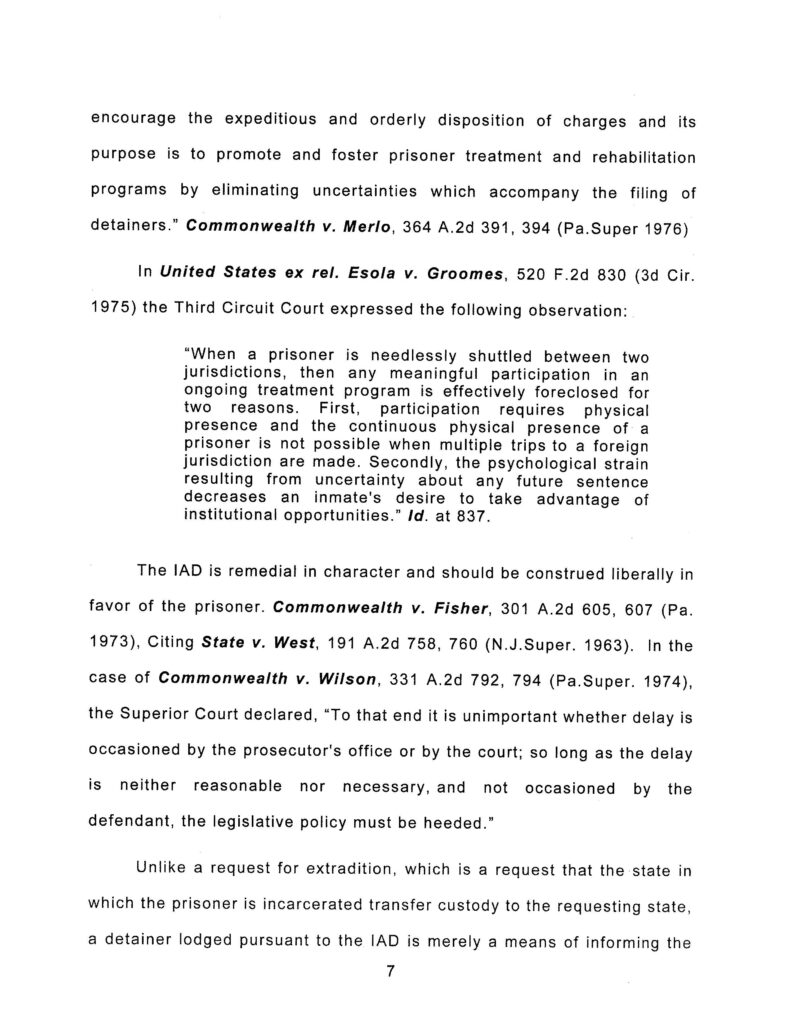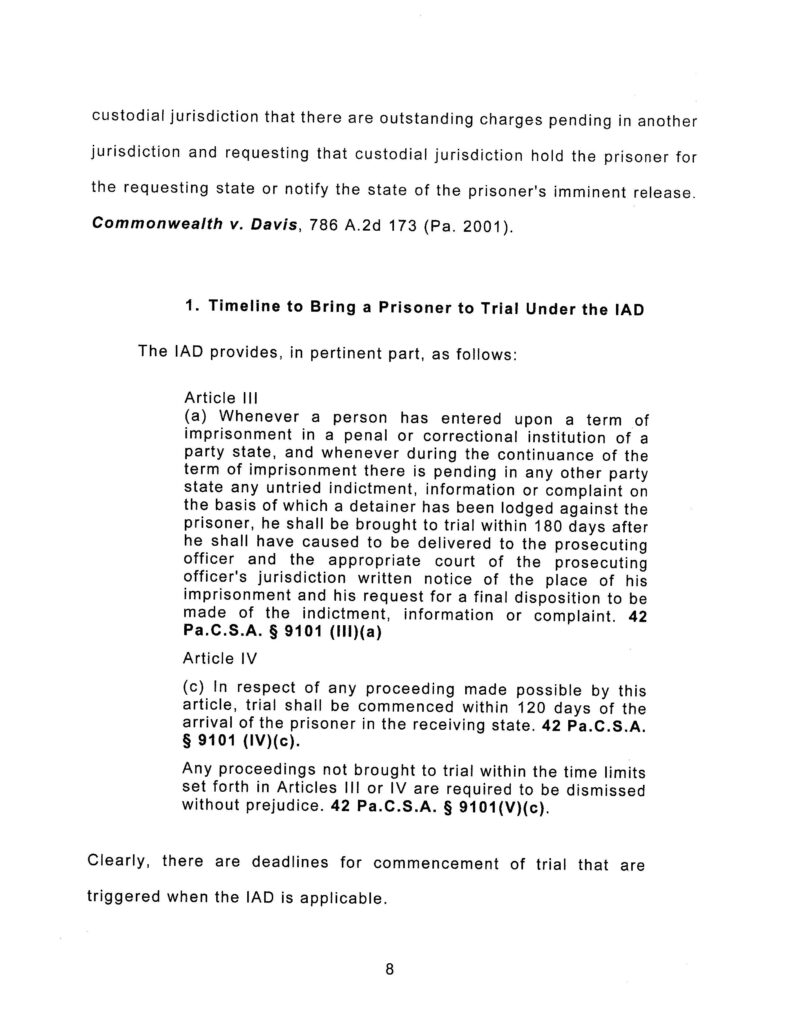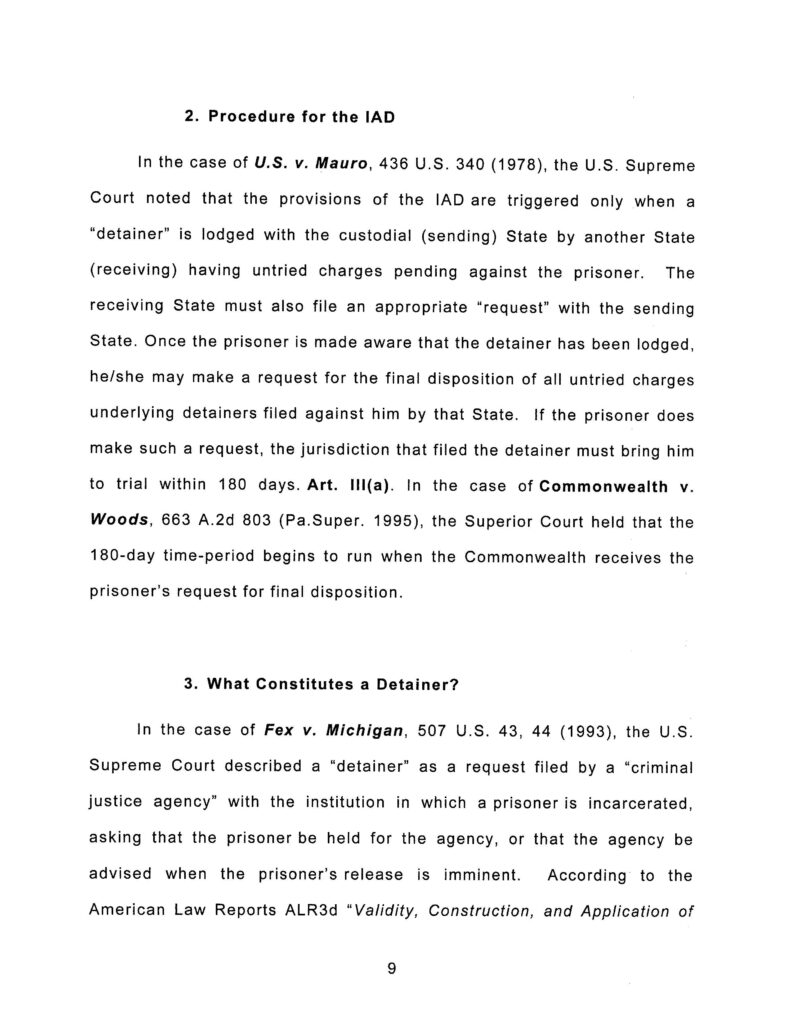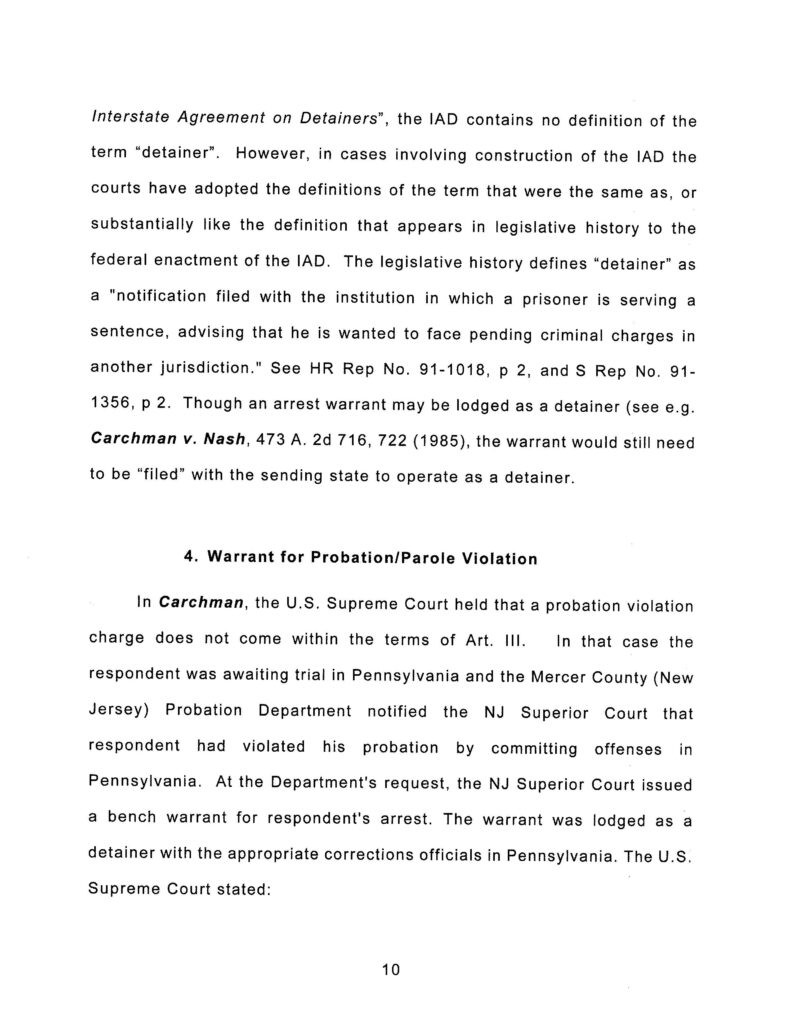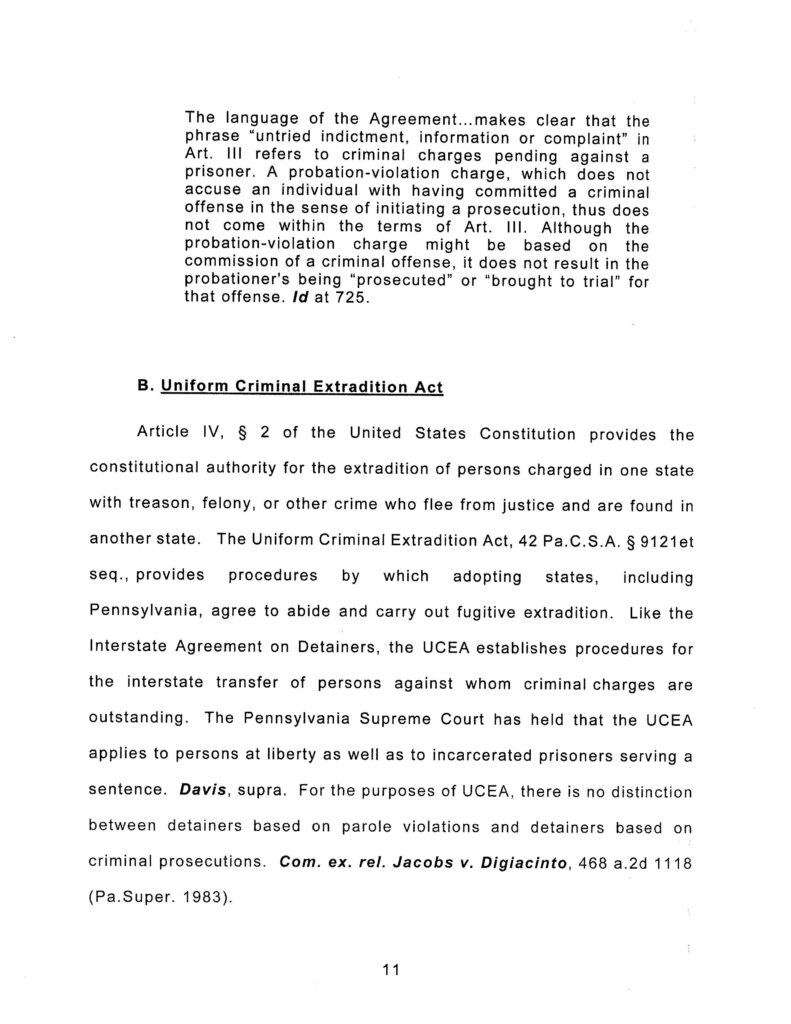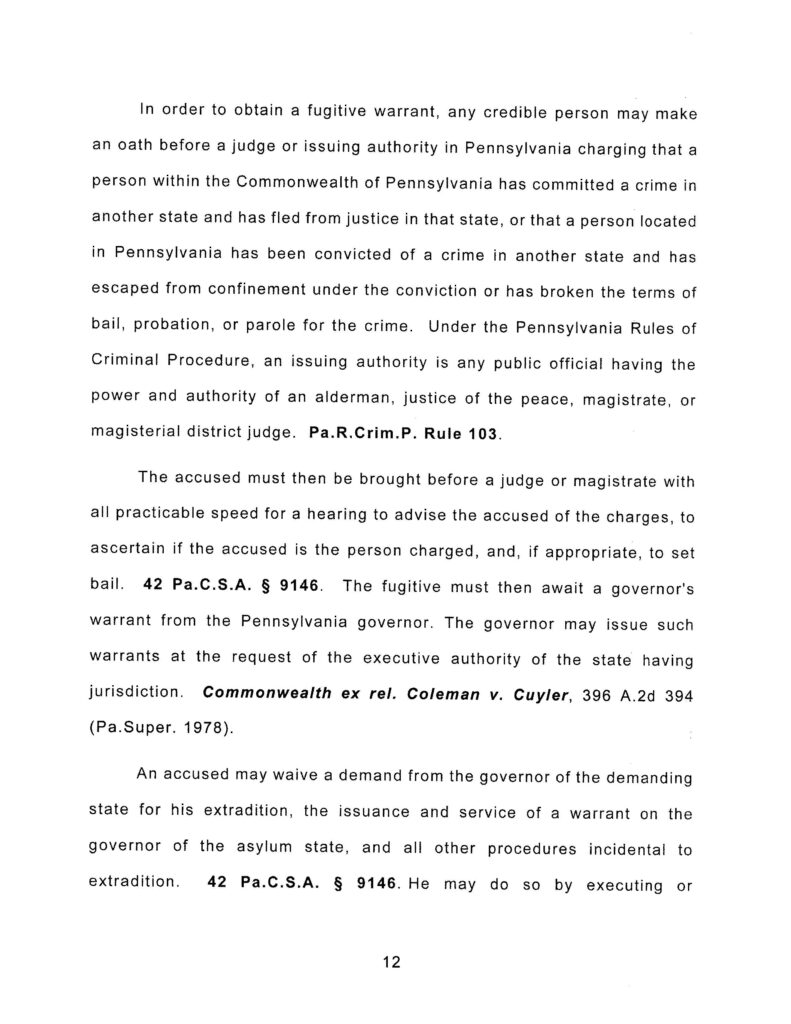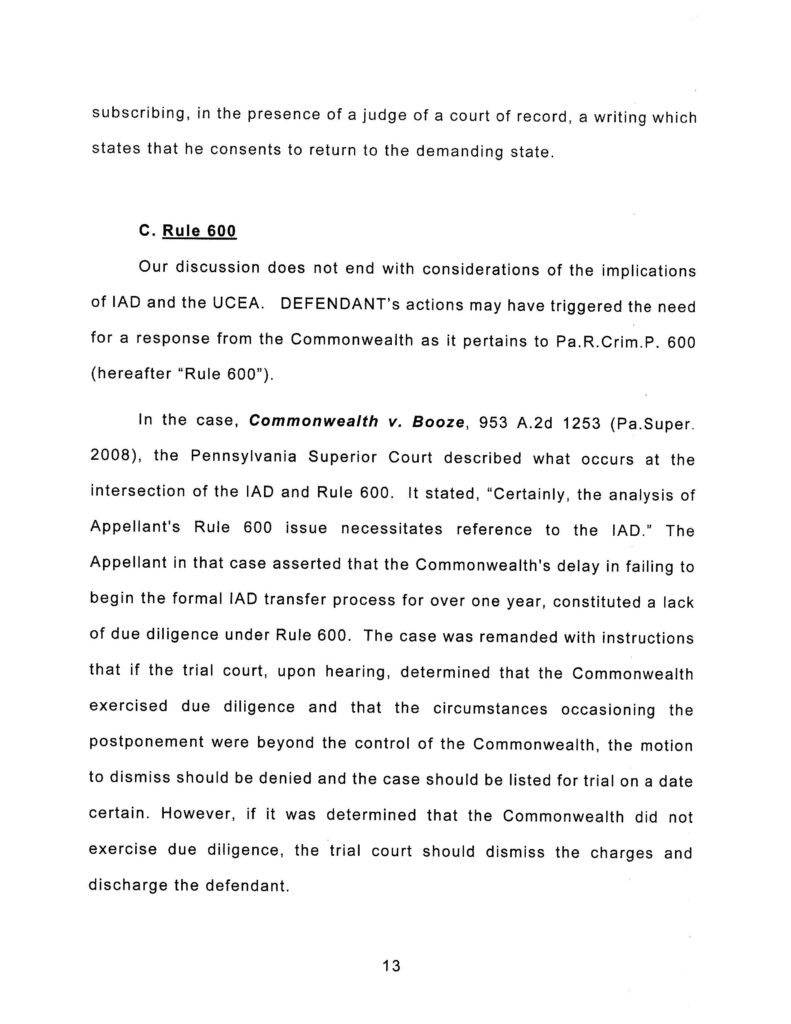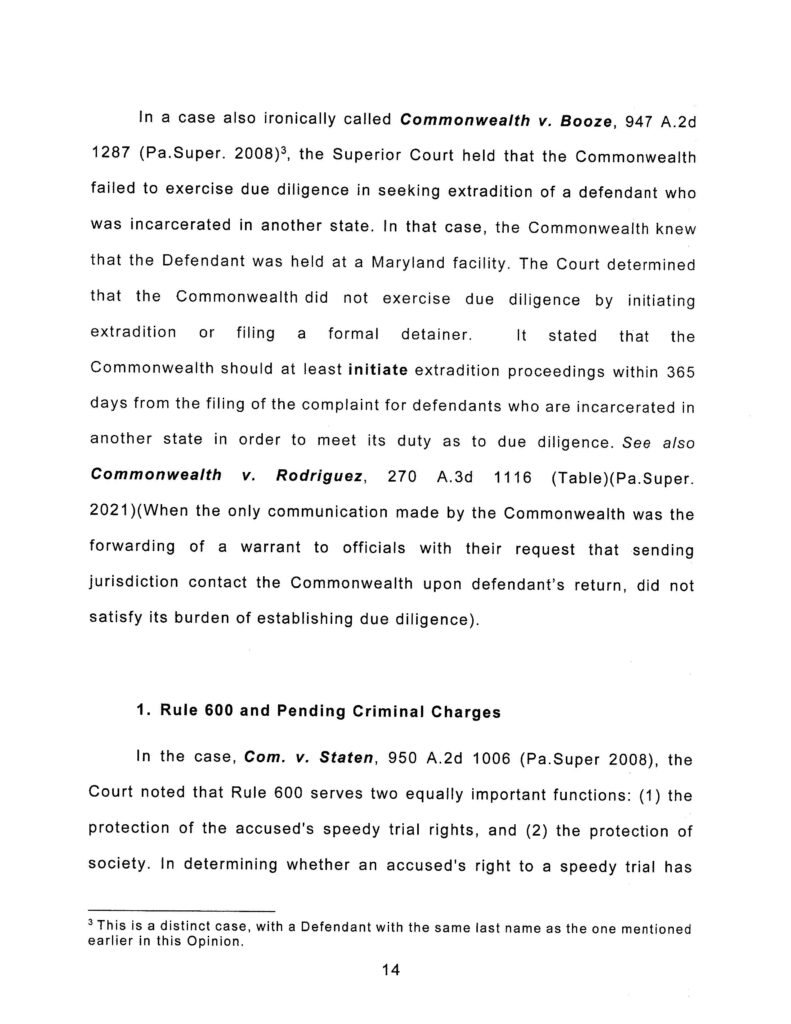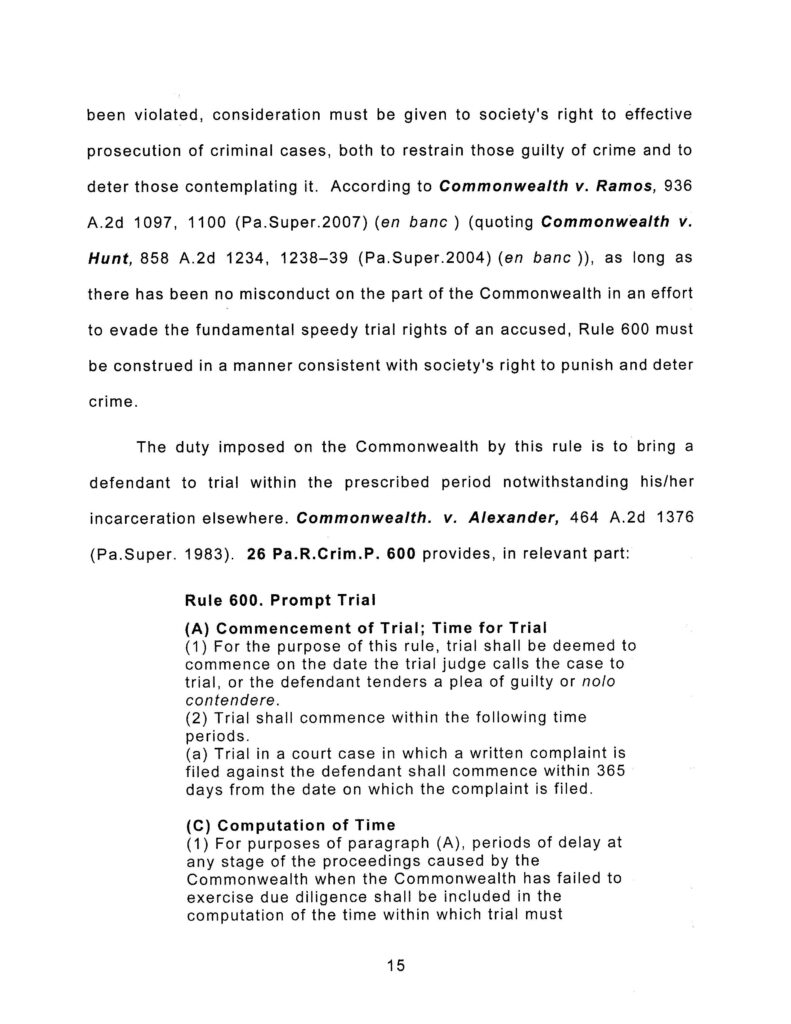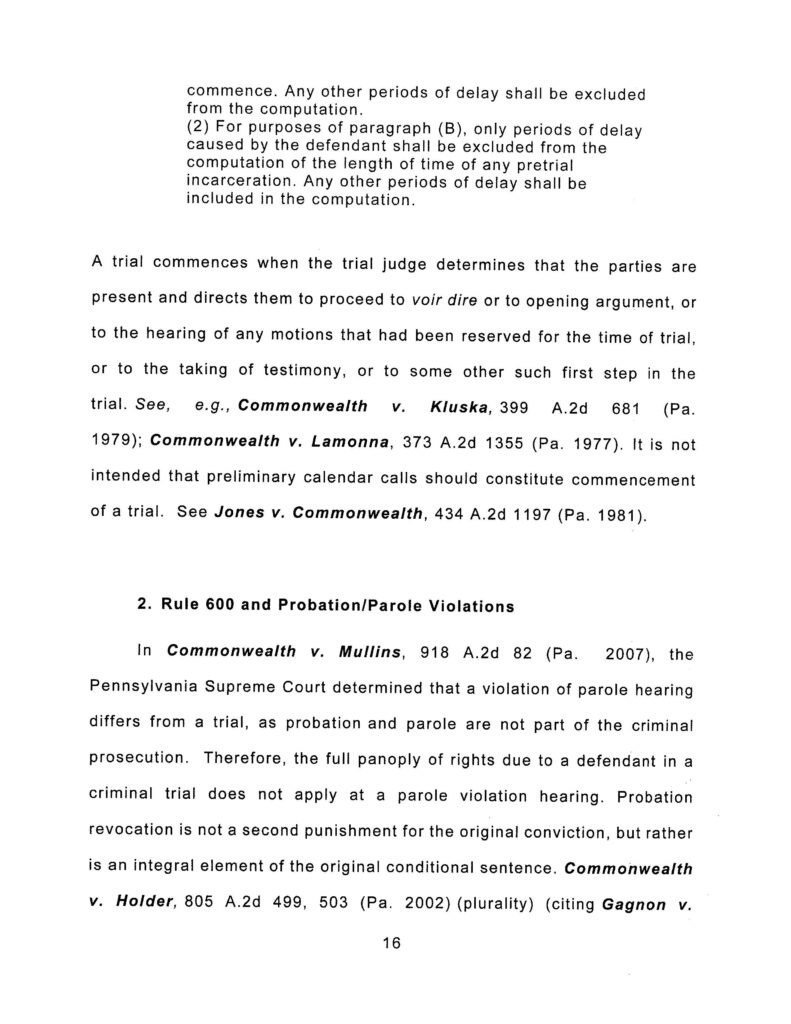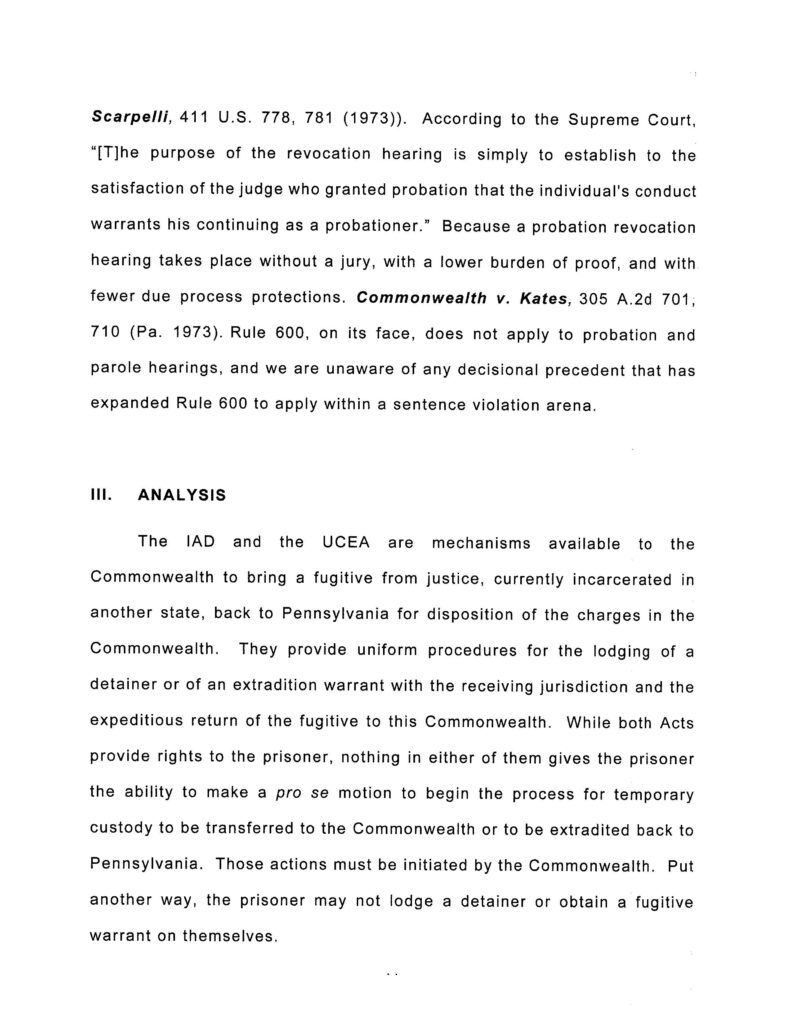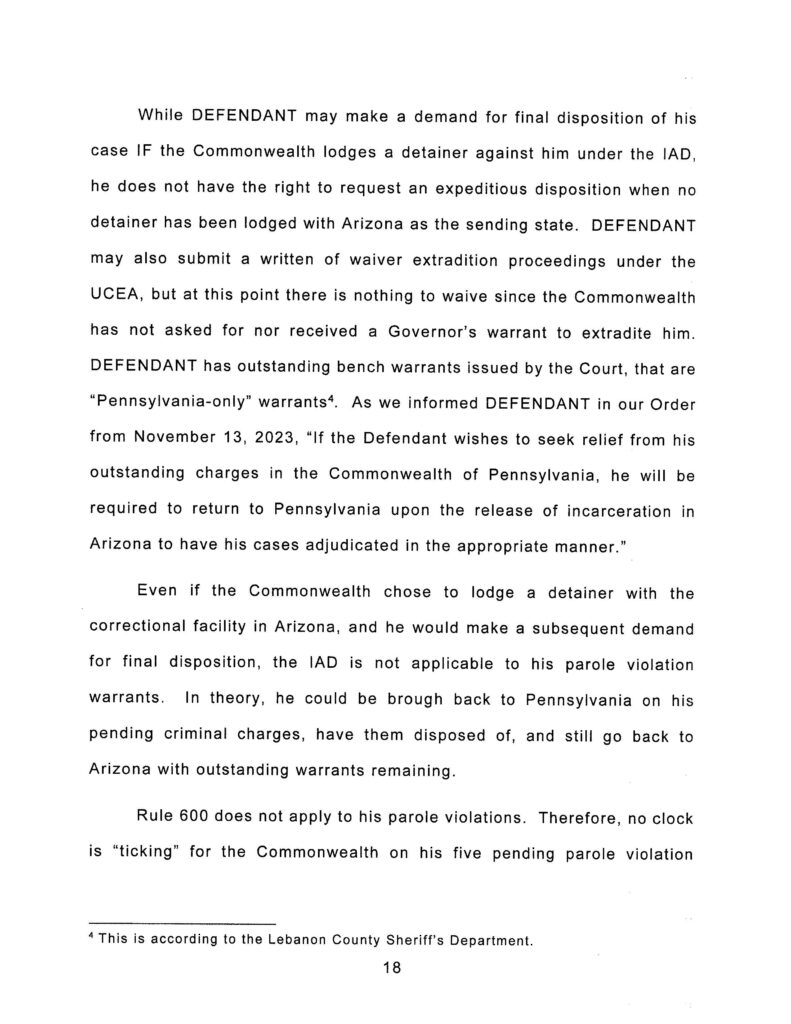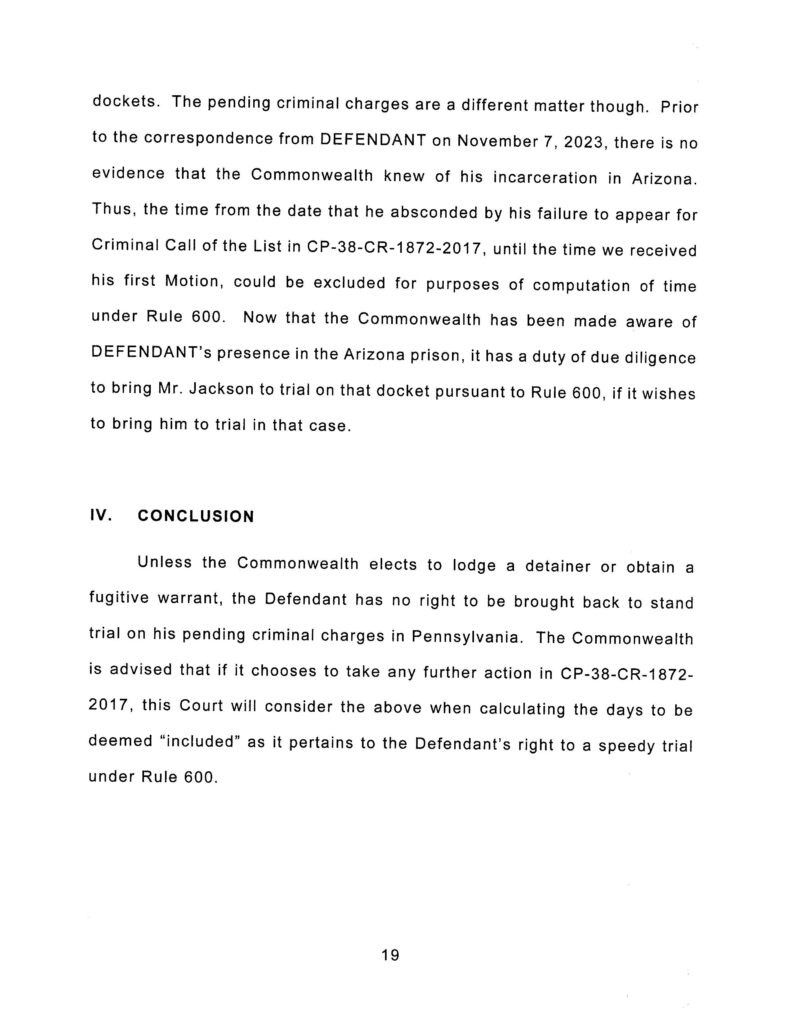Judges Opinions, — March 4, 2025 15:06 — 0 Comments
Commonwealth of Pennsylvania, v. Tyler Jackson
Commonwealth of Pennsylvania, v. Tyler Jackson
Criminal Action-Law-Bench Warrant-Pending Criminal Charges-Supervision Violations-Fugitive-Incarceration in Another State-Right of Defendant to Seek Extradition to the Commonwealth-Interstate Agreement on Detainers-Uniform Criminal Extradition Act-Right to a Speedy Trial-Pa.R.Crim.P. Rule 600
Tyler Jackson (“Defendant”) has a history of appearing before the Court relating to criminal charges and probation violations since 2014 with failing successfully to complete probation and/or to appear for hearings, which has resulted in the issuance of six (6) existing bench warrants. The Court was unaware of Defendant’s whereabouts until November 7, 2023 when he filed a pro se document entitled “Motion to Quash Warrants and/or Fines; or in the Alternative, Sentence in Absentia to Concurrent Term.” At that time, it was discovered that Defendant is imprisoned in Arizona. Following the issuance of an order denying the request to quash the bench warrants and advising Defendant of the need to return to Pennsylvania upon release to seek relief from the outstanding charges, Defendant filed separate Motions waiving extradition and requesting return to Pennsylvania within the timeframe provided by the Interstate Agreement on Detainers (“IAD”) or the Uniform Criminal Extradition Act (“UCEA”).
1. The IAD, Title 42 Pa.C.S. § 9101 et seq., establishes procedures for the transfer of prisoners incarcerated in one (1) jurisdiction to the temporary custody of another jurisdiction that has lodged detainers against them.
2. The policy of the IAD is to encourage the expeditious and orderly disposition of charges with its purpose being to promote and to foster prisoner treatment and rehabilitation programs by eliminating uncertainties that accompany the filing of detainers.
3. The IAD is remedial in nature and should be construed liberally in favor of the prisoner.
4. Unlike a request for extradition, a detainer lodged pursuant to the IAD merely is a means of informing the custodial jurisdiction that outstanding charges are pending in another jurisdiction and requesting that the custodial jurisdiction hold the prisoner for the requesting state or notify the state of the prisoner’s imminent release.
5. The UCEA, Title 42 Pa.C.S. § 9121 et seq., provides procedures by which adopting states agree to abide and to carry out fugitive extradition.
6. Under Pa.R.Crim.P. Rule 600, the Commonwealth has a duty to bring a defendant to trial within the prescribed period notwithstanding his or her incarceration elsewhere.
7. A trial commences for purposes of Rule 600 when the trial judge determines that the parties are present and directs them to proceed to voir dire, to opening argument or to some other first step in the trial.
8. Rule 600 does not apply to any probation or parole violation hearings, as they are not part of the criminal prosecution.
9. While both the IAD and UCEA are mechanisms available to the Commonwealth to bring a fugitive back to Pennsylvania for disposition of charges in Pennsylvania, fugitives do not have the ability to make a pro se motion to begin the process for temporary custody to be transferred back to Pennsylvania or to be extradited with those actions required to be initiated by the Commonwealth.
10. Unless the Commonwealth elects to lodge a detainer or to obtain a fugitive warrant, Defendant has no right to be brought back to stand trial on his pending criminal charges in Pennsylvania.
11. Since Rule 600 does not apply to parole violation warrants, Rule 600 does not compel disposition of those violations within 365 days.
12. With regard to the bench warrant issued pertaining to pending criminal charges, the Commonwealth has a duty of due diligence to bring Defendant to trial on those charges pursuant to Rule 600 once knowledge of his whereabouts was obtained.
L.C.C.C.P. No. CP-38-CR-0001913-2014, CP-38-CR-0000160-2015, CP-38-CR-0000235-2015, CP-38-CR-0001621-2015, CP-38-CR-0002100-2016 and CP-38-CR-0001872-2017, Opinion by Bradford H. Charles, Judge, March 27, 2024.
